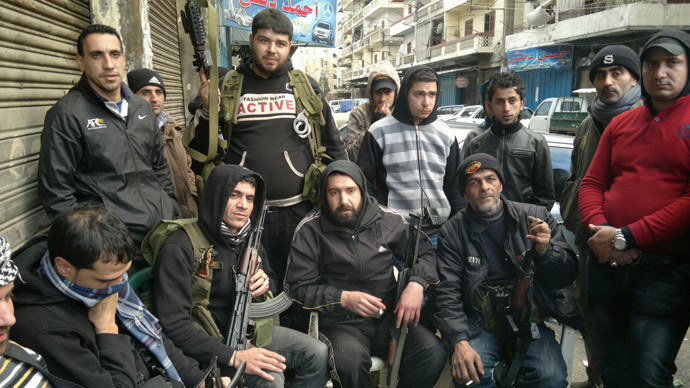‘Militant groups operating in Lebanon are totally different from those in Syria and Iraq’

The militant groups operating in Lebanon, especially in Tripoli, were enjoying the sponsorship of influential political figures in Lebanon, including members of government, unlike the extremists in Syria or Iraq, geopolitical analyst Jamal Wakim told RT.
RT:Lebanon had until recently been relatively safe from the wave of Islamic extremism that has already devastated Syria and Iraq. Could that change soon? Is there a danger of Islamic State taking over a chunk of Lebanese territory?
Political analyst Issam Atallah on potential danger for Lebanese Christians: “The fear is not only for Christians because if anything is going to happen, it’s going to affect all communities, all confessions, and all religions in the country. In every region there is a combination and cohabitation between Christians and other communities, even Sunni and Shiite. This harmony which exists in the country is going to preserve it against any interference or intersection between the IS and Lebanon. The Christians fear the situation definitely because of what happened in Iraq and Syria, but the question of Lebanese Christians is different from Iraq.”
Jamal Wakim: That might be a possibility, yet it’s still not the major one because the situation in Lebanon is different, the context in which these militant groups were operating in Lebanon is totally different from those in Syria and Iraq. First of all, I believe that the US had a stake in the expansion of ISIS in western Iraq and eastern Syria because it served the major geopolitical objective of the US to block any land communication between Baghdad and Damascus, and access between the three important capitals in the region, which are Tehran, Baghdad and Damascus. The expansion of ISIS in western Iraq and eastern Syria was in a way a part of the Americans using it as a pretext to come back to Iraq and as a pretext of fighting terrorism. In the case of Lebanon it is different in a sense that the militant groups, who were operating there, especially in Tripoli, were enjoying the sponsorship of influential political figures in Lebanon, including members of the government. For example, one of the militants was once released by the former Prime Minister himself and he enjoys good relations with the top elite from Tripoli. Until the directions that came from the US and Saudi Arabia to limit the actions of these groups, this is when the Lebanese government got the green light to crack down on these groups which didn’t want or refused to abide by the new instructions. This was made clear in a speech to the media by one of the top militants who blamed his own sheikh and other political figures who encouraged them to rebel and then forsake them. This was stated in his interview to one of the local TVs.
READ MORE:'We have to defend our land': Lebanese Christians organize self-defense to fight ISIS
RT:Lebanese Christians are preparing for the worst. How great a danger do the Christians face?
JW: I don’t believe that the Lebanese Christians are in danger, especially [since] the militant group that is fighting now is located in a narrow area. It might endanger some villages in Dakar region but I don’t believe that it will be a large-scale danger the way it happened to the Iraqi Christians. The West in general is keen on not destabilizing the eastern coast of the Mediterranean because it is interrelated to European national security. That’s why for the Europeans and for the Americans a spillover of violence into Lebanon…the terrorists might use Lebanon as a stepping stone towards Cyprus, Rhodes and the Greek islands and hence, they would be able to cross to the heartland of Europe. That’s why I believe not only Lebanon but also the coastal region of Syria will be to a certain extent spared of the fate of the hinterland of Syria and of western Iraq.
The statements, views and opinions expressed in this column are solely those of the author and do not necessarily represent those of RT.
The statements, views and opinions expressed in this column are solely those of the author and do not necessarily represent those of RT.











